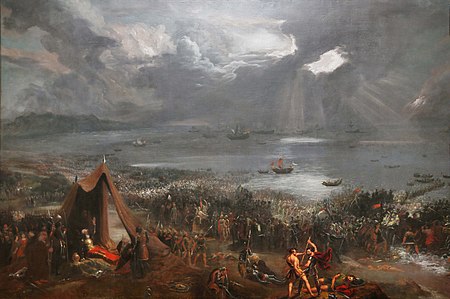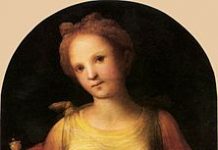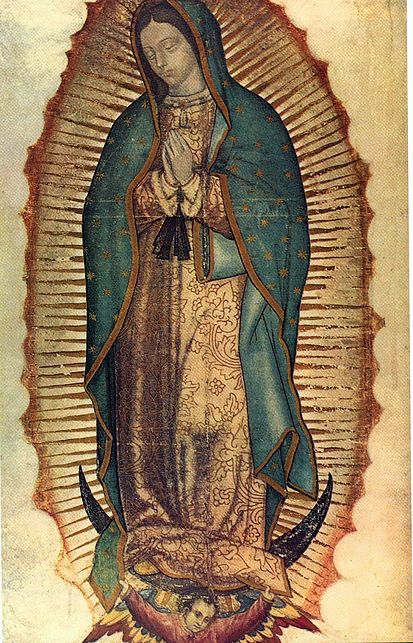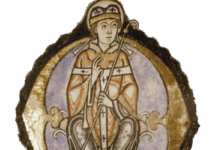
On this day in 1014, at the Battle of Clontarf, just outside Dublin, the great high king of Ireland, Brian Boru, died in battle against the Vikings – a Good Friday that year, alas. The Irish won – which is why it’s still called Ireland, and not Daneland, and with better music as a result – but at great cost, with many killed on both sides. Brian and his soldiers had just about annihilated the Viking coalition, when a band of them retreating stumbled on the King’s tent, overcame his bodyguard, and slew the elderly Irish warrior-king, who lives on in memory
They say that everyone named ‘O’Brien’ – Son of Brien – is in some way descended from Boru, which would include close to half of Ireland, I would guess. My own paternal grandmother was an O’Brien, from lovely Donegal, who grew up speaking Gaelic, and I recall with fondness her Irish lilt.
Anon, here is a fine rendition of Brian Boru’s March by the Chieftains, to rouse your fightin’ Irish spirits:
This is also the day that Charles II – aptly, the feast of Saint George, patron of Britain – was crowned king of England, Scotland and, yes, Ireland, in 1661. He was the son of Charles I, put to death by Oliver Cromwell in 1649, who ruled the Isles with an iron fist until his own death in 1658. When Charles II was put on the throne after returning from exile, memory of whose Cromwell’s destructive Protectorate was soon obliterated, with Charles’ reign predated to 1649, as though he had seamlessly succeeded his father.
Charles was drawn to Catholicism, and wanted to give freedom to Catholics, but was blocked by the now-regnant Parliament. He is court was known for its jollity and joie de vivre after the glumness of Cromwell’s iconoclastic Calvinism. Charles himself was a popular king, known as the ‘Merry Monarch’ – perhaps a bit too merry, with his indeterminate number of illegitimate children, and no legitimate heirs. It is said he converted on his deathbed, hopefully with a good Confession.
Charles was succeeded by his older brother, James II, the last ‘real’ king of England, a Catholic, who tried to restore the Faith. But ‘twas too late, and in the inaptly named ‘Glorious Revolution’ of William and Mary in 1688, both monarchy and the Faith mostly came to an end in England, left as but vestiges of their former glory. The tide was against them, and when he finally abdicated, on his way to exile in France, James in a symbolic gesture threw the Great Seal of England into the depths of the sewage-polluted Thames, whence it had to be retrieved by a couple of unfortunate chaps.
I don’t think most of us are looking forward to the woke reign of ‘Charles III’, and we might hope he either defers to his son William, or Elizabeth lives longer than medical science might predict. Whatever one says of the monarchy, the Faith certainly never dies, and we may hope that somewhere, in Ireland, Scotland and England, its fires are still burning, ready to be fanned into flame, in God’s good time, before Christ’s return. Then we will see a true glorious revolution, when all things will be made new.










